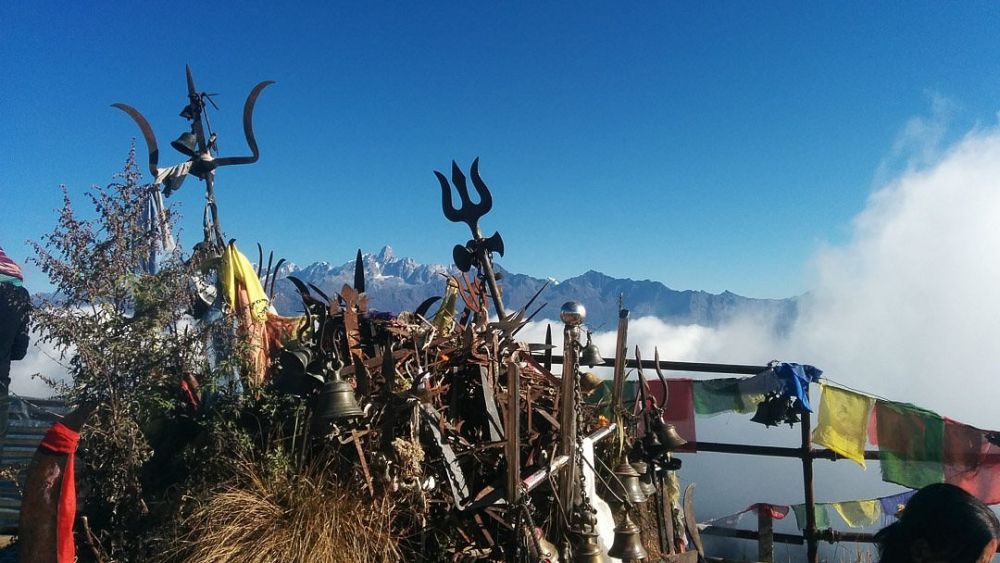

The Himalayan region of Nepal has long been a destination for travelers and pilgrims seeking both spiritual fulfillment and the allure of nature's majesty. Deep within this dramatic landscape rests the Kalinchowk Bhagwati Shrine, one of the most revered Hindu sites in the country. Located in the Dolakha district, this sacred temple stands at an elevation of approximately 3,842 meters above sea level and is dedicated to Goddess Kali, a powerful deity in Hindu mythology.
The history of tourism at Kalinchowk Bhagwati Shrine is entwined with its religious significance. For centuries, it has been a pivotal site of worship and a destination for thousands of pilgrims. These devout visitors initially set the stage for tourism in this region, braving the challenging treks to seek the goddess's blessing. Over time, the influx of pilgrims drew attention to the area's natural beauty and potential for adventure tourism.
The development of tourism at the Kalinchowk Bhagwati Shrine underwent a significant transformation with the establishment of infrastructure to cater to the growing number of visitors. Hotels, lodges, and transportation services began to emerge, accommodating not only pilgrims but also trekkers, mountaineers, and cultural tourists. The shrine's popularity increased as more people sought to witness cultural festivities, particularly during auspicious times such as Dashain and Shivaratri, during which the shrine sees an exponential increase in visitors.
In recent years, the Kalinchowk Bhagwati Shrine has observed new trends with a shift towards adventure tourism and eco-tourism. The region is now highlighted by travel enthusiasts for its trekking routes, snow activities during winter, and for providing a serene environment close to nature. Cable car services inaugurated in the area have further boosted tourism by offering an accessible and panoramic journey to the shrine, attracting even more visitors and simplifying the pilgrimage for believers.
Additionally, the area's tourism has been bolstered by digital and social media, with tourists sharing their experiences online, enticing a new demographic eager for off-the-beaten-path destinations and cultural experiences. The beauty of the rugged Dolakha landscape and the spiritual ambiance of the shrine continue to be a potent combination that draws tourists from around the globe.
With the rise of global awareness on environmental concerns, there is an increasing trend toward sustainable tourism practices in the area surrounding the Kalinchowk Bhagwati Shrine. Efforts are being made to preserve the natural and cultural heritage, with emphasis on minimizing the impact of tourism on the environment and local communities. This has included educational programs for tourists about the local ecosystem, community-based tourism initiatives, and the promotion of local handicrafts and products.
The history of the Kalinchowk Bhagwati Shrine as a center of Nepalese spirituality and its evolution into a dynamic tourism destination reflects both a reverence for tradition and an adaptation to modern demands. As it continues to attract more diverse audiences, the shrine and its surrounding region stand as a testament to the enduring power of cultural landmarks to inspire contemporary tourism.
The Kalinchowk Bhagwati Shrine is a unique blend of devotion, natural beauty, and cultural heritage that continues to enchant visitors. As the shrine evolves with changing tourism trends, it remains a beacon for those seeking spiritual enlightenment and adventure amidst the serenity of the Himalayas.